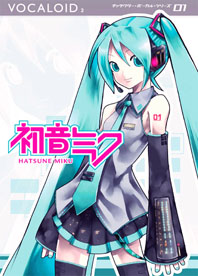Lesson 7: Shopping
Expressions
| About the store | ||
|---|---|---|
| Where can I buy electric appliances? | Denka seihin wa doko de kae masuka? | |
| Is there a convenience store nearby? | Chikaku ni konbiniensu sutoa wa ari masuka? | |
| What time does the pharmacy close? | Yakkyoku wa nan-ji ni heiten desuka? | |
| Does that store have variety of products? | Sono mise wa shurui ga hōfu desuka? | |
denka seihin: electric appliances / tabemono: food / fuku: clothes dokode?: at where? (doko: where + de: at) kau (kai masu): to buy (kae masu: can buy) chikaku: nearby konbiniensu sutoa: convenience store / sūpā: supermarket / yakkyoku: pharmacy mise: store, shop kaiten: opening (of the store) / heiten: closing (of the store) shurui ga hōfu: full of variety (shurui: kinds, hōfu: plenty, abundant) |
||
| I am looking for _. | ||
|---|---|---|
| Are you looking for something? | Nanika osagashi desuka? | |
| I'm looking for second-hand computers. | Chūko no konpyūta o sagashi te imasu. | |
| Where's camera section? | Kamera uriba wa doko desuka? | |
| Watch section is on the 3rd flr. | Tokei uriba wa san-kai desu. | |
sagasu: to look for, to search _te (tte) imasu: doing something right now (present progressive) chūko: second-hand / shinpin: brand-new konpyūta: computer / kamera: camera / tokei: watch _uriba: _section (for sale) |
||
Basic Rules verb + te (tte) + imasu = present progressive form Affirmative: te imasu (present) / te imashita (past) Negative: te imasen (present) / te imasen deshita (past) Wuestion: te imasuka? (present) / te imashitaka? (past) |
||
| About the product | ||
|---|---|---|
| Can this also be used in foreign countries? | Gaikoku demo tsukae masuka? | |
| What is this made of? | Kore wa nani de dekite imasuka? | |
| What is the material? | Sozai wa nan desuka? | |
| 100% cotton. | Men hyaku pāsento desu. | |
gaikoku: foreign country _demo: also at_, also in_ (place) (de: at + mo: also) tsukau: to use (tsukae masu: can use) _de dekite iru: be made of_ sozai: material men: cotton / kinu: silk / poriesuteru: polyester |
||
| Extra arrangements | ||
|---|---|---|
| Can I try this on? | Shichaku dekimasuka? | |
| Can I back order? | Toriyose wa dekimasuka? | |
| Can you do alteration? | Sunpō naoshi wa dekimasuka? | |
| Can I return? | Henpin wa deki masuka? | |
shichaku: trying to put clothes on toriyose: back order sunpō naoshi: alteration (sunpo: size + naoshi: fix) henpin: return (of the purchased goods) |
||
| Fitting | ||
|---|---|---|
| How is it? | Ikaga desuka? |
|
| Little small. | Sukoshi chiisai desu. | |
| It fits. I'll take this. | Chōdo ii desu. Kore ni shimasu. |
|
| Little short. | Sukoshi mijikai desu. | |
sukoshi: little ōkii: large / chiisai: small nagai: long / mijikai: short ikaga desuka?: How is it? (polite) / dō desuka? (informal) chōdo ii: just right (it fits) (chōdo: just + ii: right, good) |
||
| Back order | ||
|---|---|---|
| Do you have a little smaller size? | Mōsukoshi chiisai saizu wa ari masuka? | |
| L size is out of stock. | Eru saizu wa shinagire desu. | |
| How long does it take for back order? | Toriyose wa donokurai kakarimasuka? | |
| Then, please (back order). / Then, no thanks. | Dewa, onegaishimasu. / Dewa, kekkō desu. | |
mōsukoshi: little more (mō: more + sukoshi: little) saizu: size shinagire: out of stock dewa: then |
||
| Color | ||
|---|---|---|
| Do you have a little lighter color? | Mōsukoshi akarui iro wa arimasuka? | |
| white, black, red, blue, yellow | shiro, kuro, aka, ao, kiiro | |
| green, orange, pink | midori, orenji, pinku | |
| purple, brown, gray | murasaki, chairo, haiiro | |
| Do you have a pink color with the same design? | Onaji dezain de pinku wa arimasuka? | |
akarui: light / kurai: dark iro: color onaji: same dezain: design |
||
Basic Rules Colors: People know most colors in English. Try with the Japanese way of pronunciation. howaito (white), burakku (black), reddo (red), buruu (blue), ierō (yellow), guriin (green) |
||
| Ask for other items | ||
|---|---|---|
| Do you have other patterns? | Hoka no gara wa arimasuka? | |
| Do you have other colors? | Hoka no iro wa ari masuka? |
|
| Do you have other brands? | Hoka no burando wa arimasuka? | |
| Do you have something similar to this? | Nitamono wa arimasuka? | |
hoka: other gara: pattern (print) burando: brand nitamono: similar goods |
||
| Is _ included? | ||
|---|---|---|
| Batteries included? | Denchi wa tsui te imasuka? | |
| Half year warranty is included. | Han-toshi kan hoshō ga tsuite imasu. | |
| Instructions in English is not included. | Eigo no setsumeisho wa tsuite imasen. | |
tsuku: attach, include (tsui te iru: be attached, be included) denchi: battery hoshō: warranty setsumeisho: instruction, manual |
||
Basic Rules verb + te (tte) + imasu = state of things The present progressive form can be used to refer the state of things. It is like English passive form also refers the state of things. "It's frozen." for example. |
||
| Bargaining | ||
|---|---|---|
| Can it be a little cheaper? | Mōsukoshi yasuku nari masuka? | |
| Can it be cheaper if I bought two? | Futatsu kattara yasuku nari masuka? | |
| How much in total? | Zenbu de ikura desuka? | |
| How about 7,500 yen? | Nana-sen go-hyaku en de dōdesuka? |
|
| Then I'll take it. / Then, no thanks. | Dewa, kore ni shimasu. / Dewa, kekkō desu. |
|
yasui: cheap naru: become (yasu ku naru: becomes cheap) kau: to buy (ka ttara: if I buy) zenbu: all _de dōdesuka?: How about_? (inpolite) dewa: then |
||
Basic Rules adjectives or adverbs + ku (or ni) + naru = become_ Affirmative: ku nari masu (present) / ku nari mashita (past) Negative: ku narimasen (present) / ku narimasendeshita (past) Question: ku nari masuka? (present) / ku nari mashitaka? (past) Examples: taka ku nari masu (become expensive), chiisaku takuarimasen (doesn/t become small), shizuka ni nari mashita (became quiet)
verb + ta (tta) + ra = if I _ Examples: i ttara (if I go), tabe tara (if I eat), shi tara (if I do) |
||











